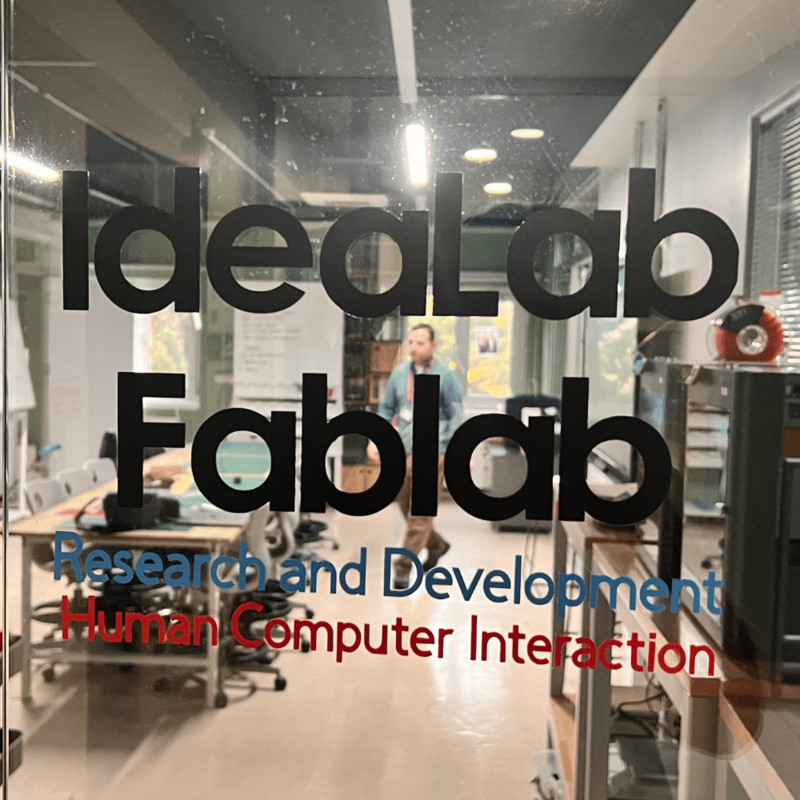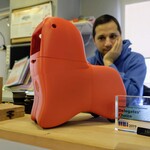
Göktürk Merkez, İstanbul Cd. No:3, 34077 Eyüpsultan/İstanbul, Istanbul, Kemerburgaz, 34075, Türkiye
Lab tags:
In 2013, our maker space was created when a group of students interested in robotics and programming turned one of the rooms in the school into the ideaLab. IdeaLab’s design changed from year to year and evolved into a unique learning environment in which students learn from each other. IdeaLab continues to inspire us all as an area where we discover ourselves, work together, make mistakes, try again, and learn.
The lab continues to grow and change every year as the interest and ideas of the students change to ensure that all students can make the projects they are passionate about. The ideaLab continues to evolve as a dynamic living and learning space, as illustrated by the diversifying additions of the Lab Fabrication.
Students that work in the IdeaLab learn to take responsibility for their own learning and obtain skills like programming, 3D Design, and critical thinking as they work according to our motto “Make, Fail, Learn and Repeat”.
In IdeaLab, we are working on a number of interesting, garage-type STEAM projects, including arcade machines and games, drones, face and emotion recognition devices, sensors for IoT, and various Raspberry Pi and Arduino projects. At the same time, we participate in many national and international projects, conferences, and hackathons on a regular basis. Since 2014, we have been organizing Hisar Coding Summit, a 2-day event where we give various programming and design workshops to anyone who is willing to learn around the globe. We also record our workshops and upload them to Udemy, where we have more than 27,000 students, to provide open-source materials other than the Coding Summit. In 2019 and 2020, we brought the Pi Wars Robotics Competition to Turkey. In addition to the 2-day long competition, we also gave electronics, programming, and design courses on how to build a Pi Wars robot to the competing teams. With the positive feedback we received from over 300 participants from the events we organized, we decided to give a workshop at FabXLive 2020 about building a modular competition robot for beginners.
We designed an educational toy robot named Pomelo, which teaches the basics of programming and computational thinking to younger kids with physical code blocks. We participated in several conferences including FabLearn Asia’20 with our prototypes and got our paper published by the IEEE. We have been collaborating with a professor at Wesley University for a research project about the transition from block-based coding to syntax-based coding.
Currently, we're working on an educational kit, Lemon, which provides introductory modeling, mechanics, electronics, and programming courses, that enable learners to engage with all these concepts while enhancing their computational and design thinking skills. Lemon consists of three robots: Lime, Satsuma, and Lemon. Lime is a robot fish and it focuses on design and mechanics. Satsuma is a robot turtle and focuses on electronics. Lastly, Lemon is a robot dog and focuses on programming. In October 2022, we conducted a workshop on the Lemon kit at the Fab Fest Bali, which was really beneficial for us because we got the opportunity to share our kit with other FabLabs, connect with them, and explore novel projects.
Links
- https://www.hisarschool.k12.tr/fab-academy_en/
- https://hisarcs.github.io/LemonRoboticsKit/
- https://hisarcs.github.io/technovation/
- https://www.udemy.com/user/hisarcs/
- https://hisarcs.github.io/pirobot/
- https://piwars.hisarcs.com/
- https://hisarcs.github.io/website
- https://hisarcs.github.io/PomeloWeb/
- http://event.hisarcs.com
- 3D-Drucken
- CNC-Fräsen
- Leiterplattenherstellung
- Laserschneiden/-gravieren
- Schneideplotten













